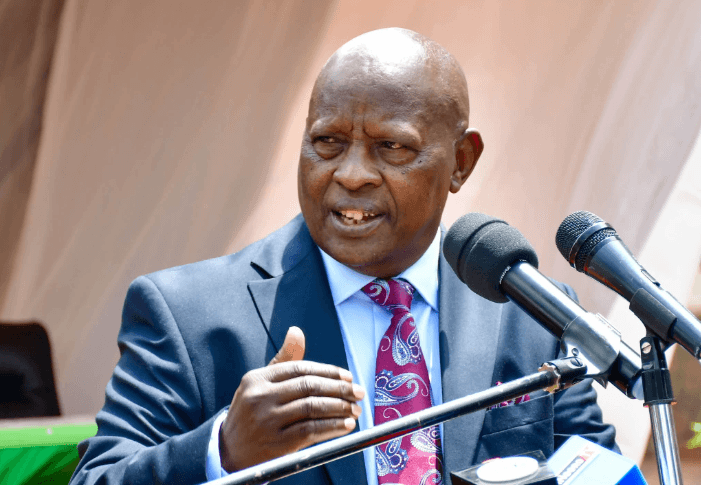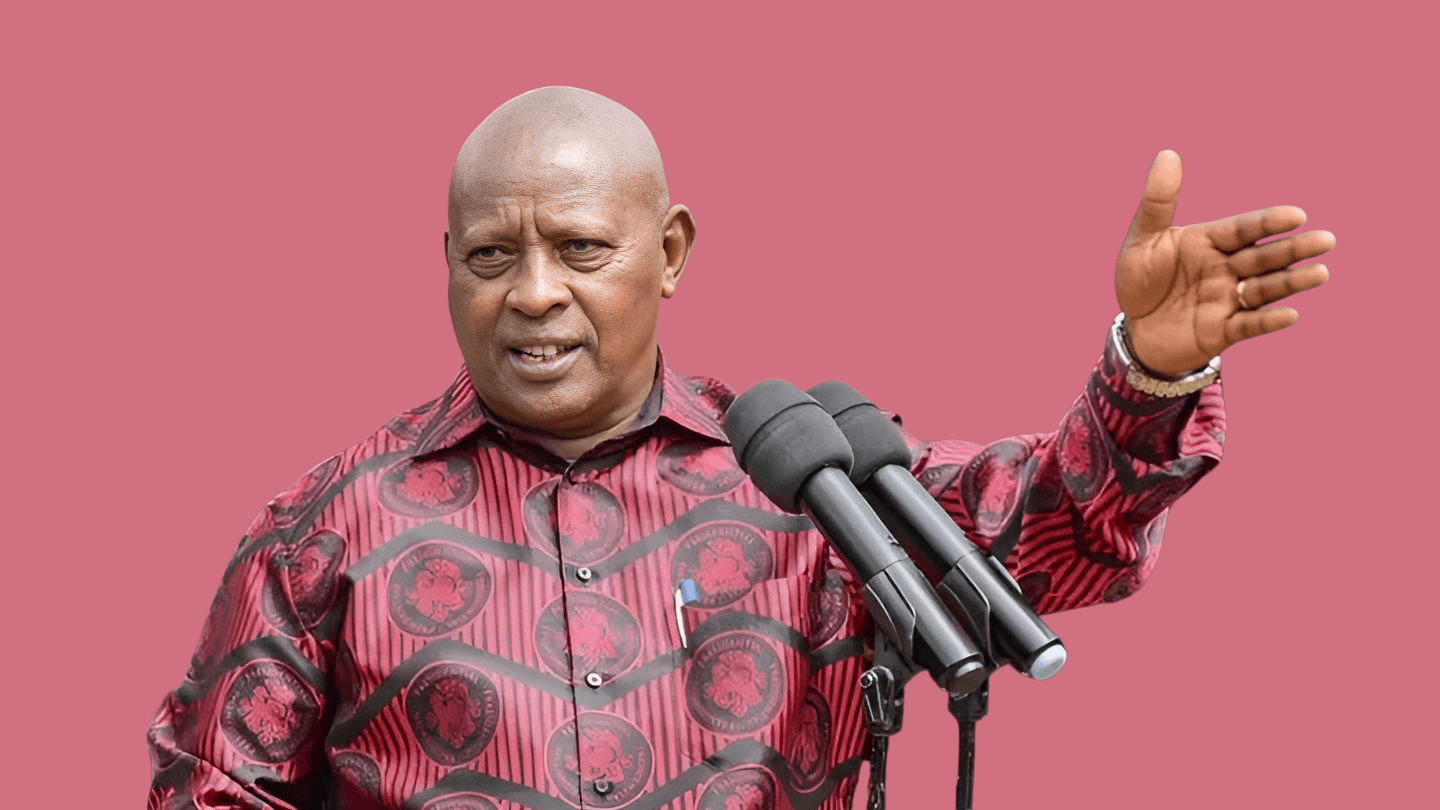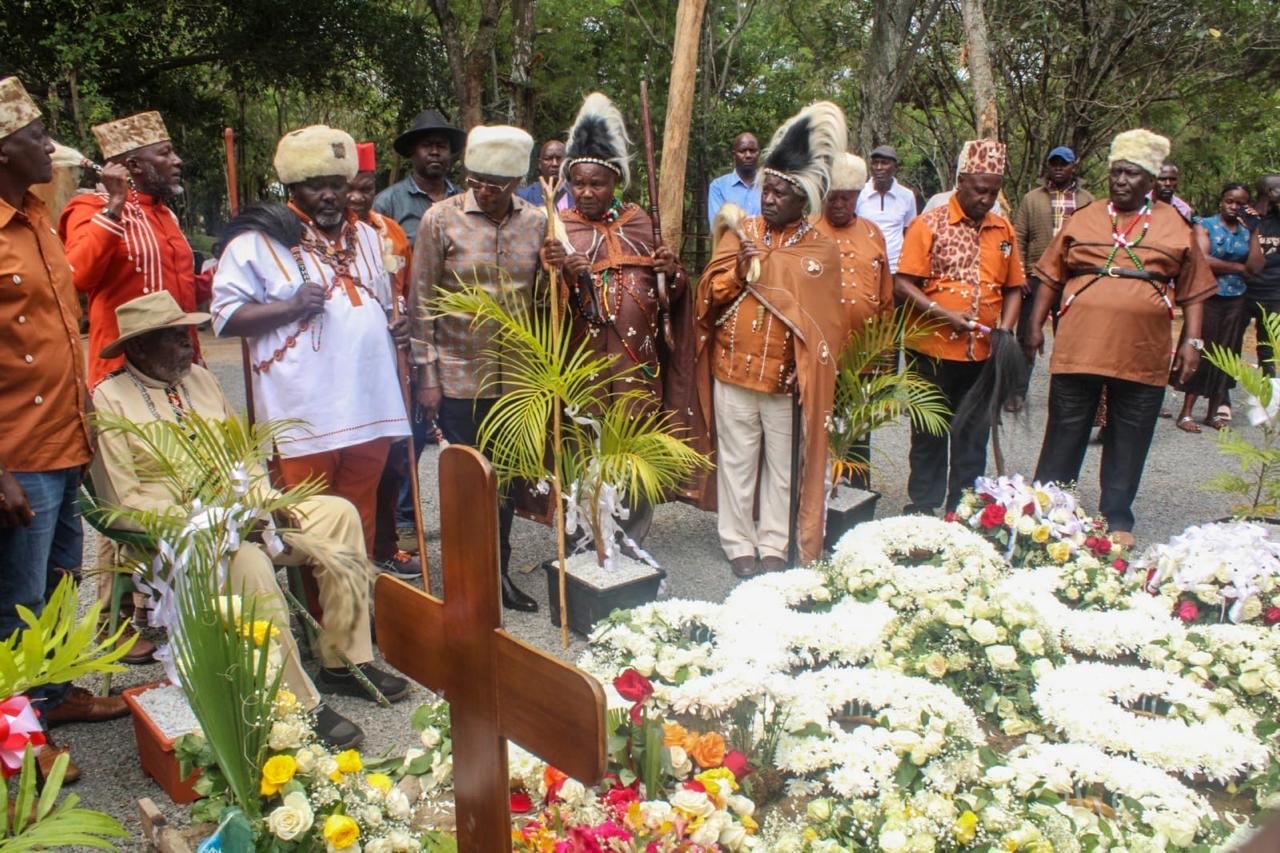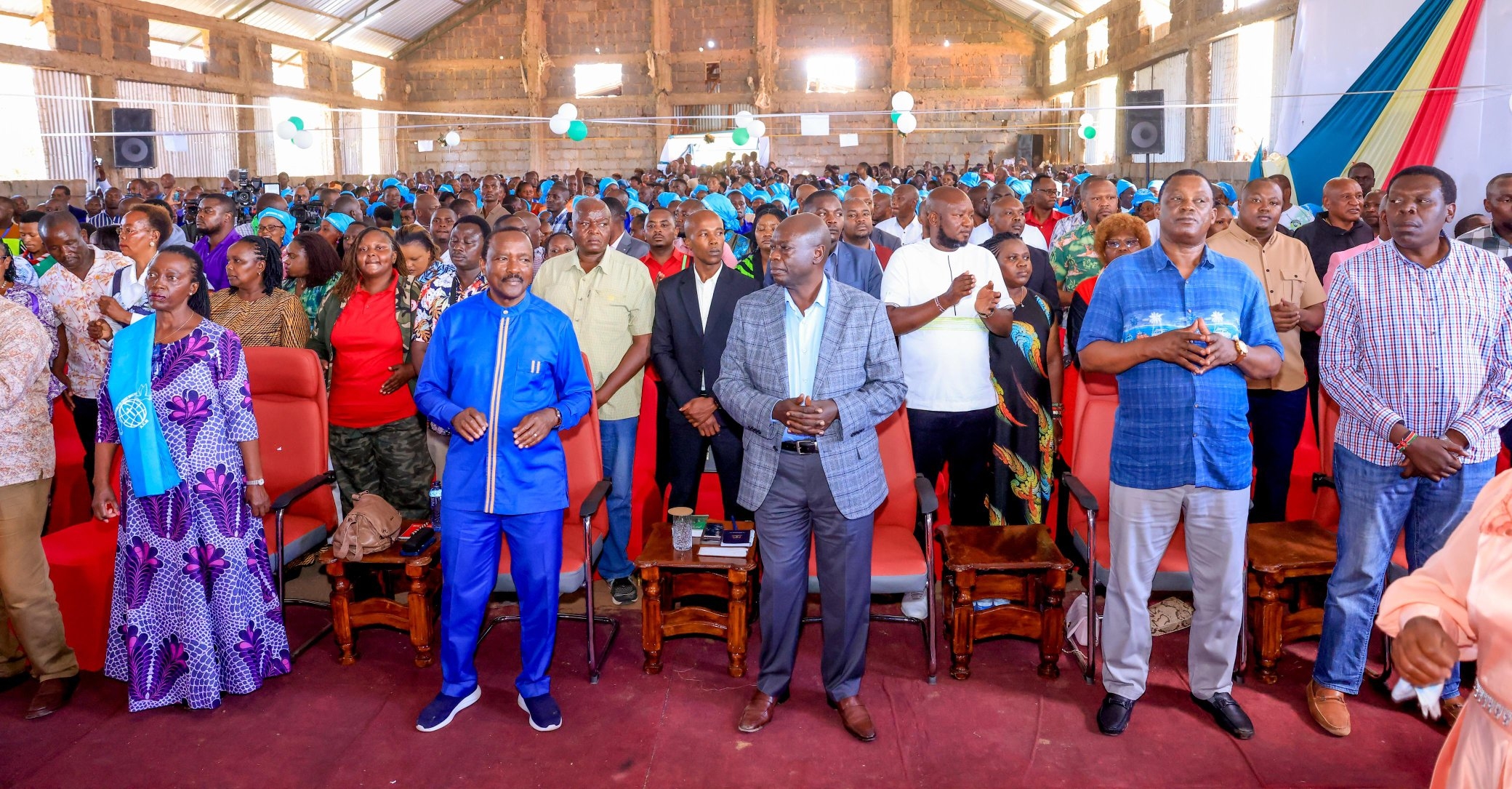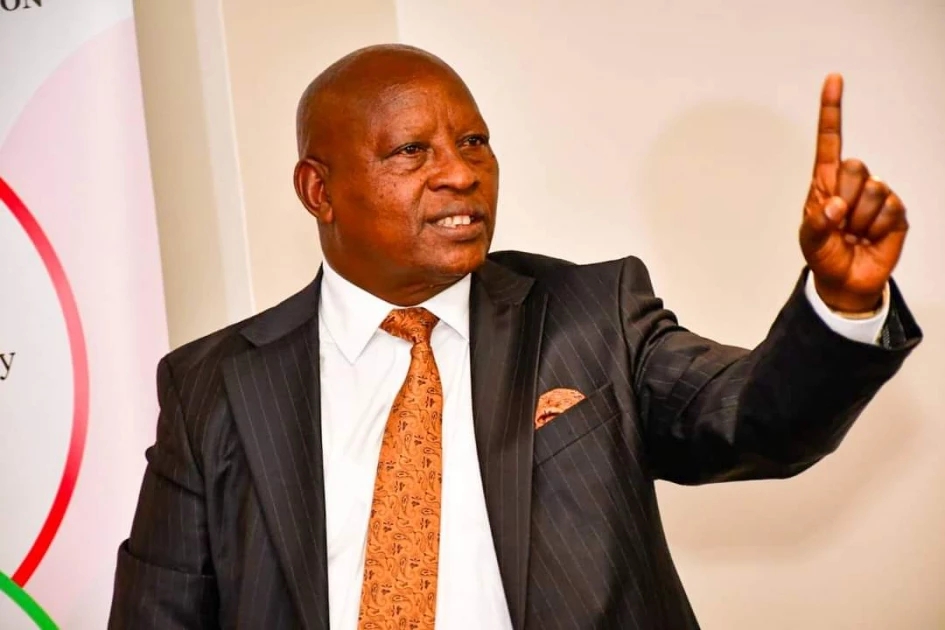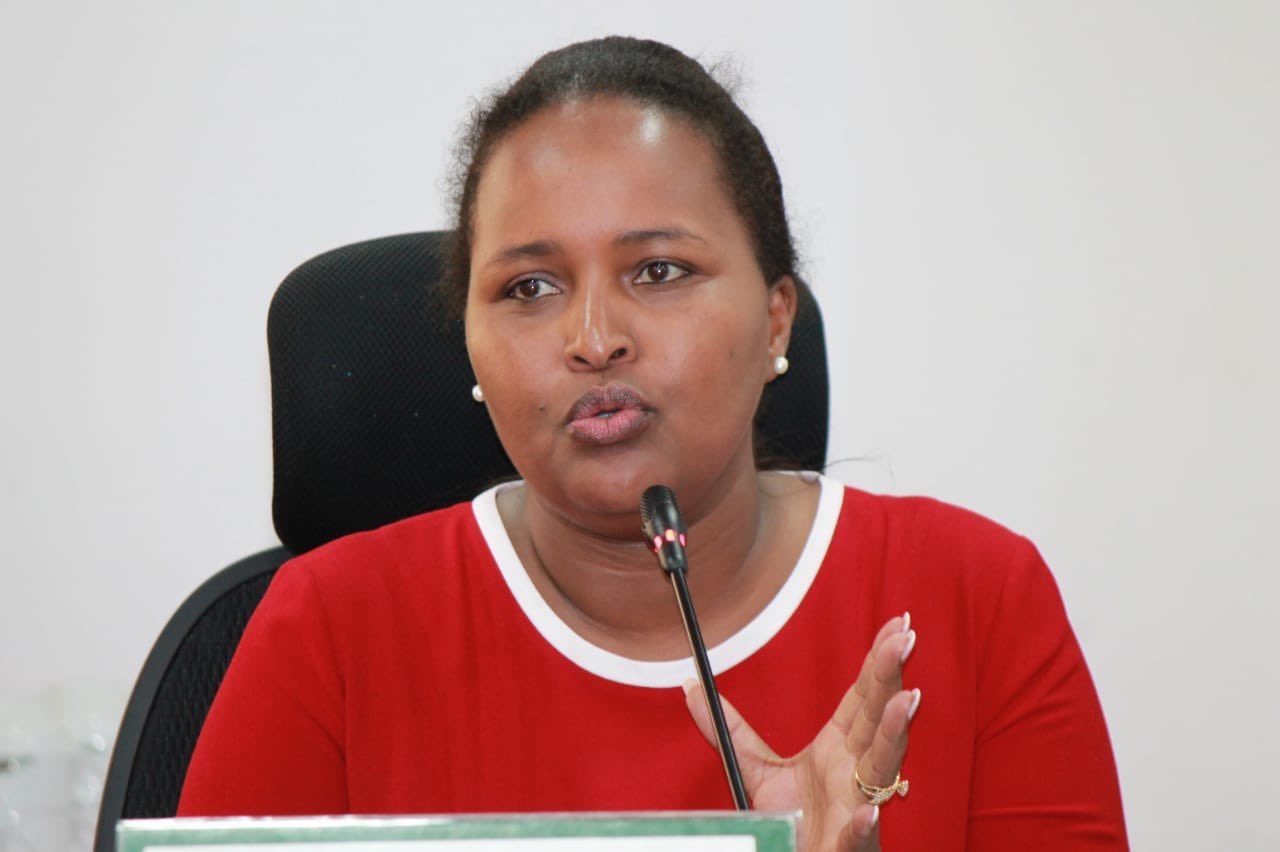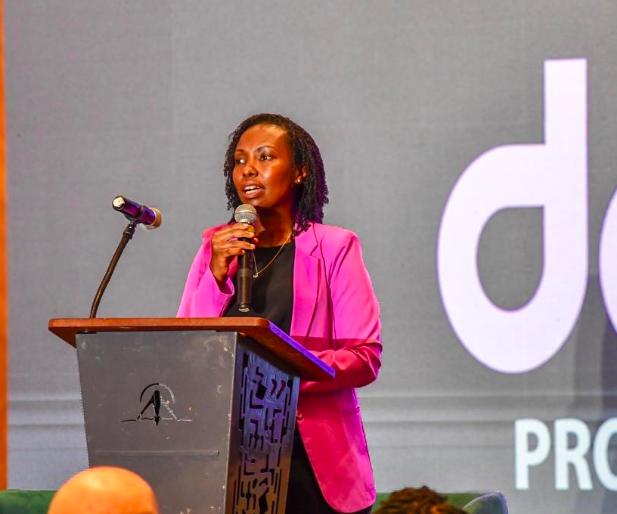 Dr. Margaret Njenga, CEO, Population Services Kenya, during the National DESIP Dissemination Conference/HANDOUT
Dr. Margaret Njenga, CEO, Population Services Kenya, during the National DESIP Dissemination Conference/HANDOUT
Key stakeholders gathered in Nairobi for the National DESIP Dissemination Conference to celebrate the transformative achievements of the Delivering Sustainable and Equitable Increases in Family Planning (DESIP) Programme.
Funded by UK Aid through the Foreign, Commonwealth & Development Office (FCDO), the programme has significantly improved maternal and child health by enhancing access to family planning (FP) services, particularly for vulnerable populations in Kenya.
The conference, themed "Reaching the Most Vulnerable to the Last Mile: Reflections on Innovative Family Planning Practices," reflected on DESIP’s role in advancing reproductive health equity. The programme, launched in 2019, has been implemented in 12 counties with low modern contraceptive prevalence rates (mCPR). Through strategic partnerships, DESIP has empowered women, adolescents, and people with disabilities in rural areas to make informed decisions about their reproductive health.
Population Services Kenya CEO, Dr. Margaret Njenga, praised the programme for its impact, stating, that the DESIP Programme has been a game-changer in Kenya’s reproductive health landscape, empowering thousands of women and marginalized communities with access to quality family planning services.
“Through strategic partnerships and innovative approaches, DESIP has strengthened health systems, reaching communities that were once overlooked. It has significantly contributed to the reduction of maternal mortality, helping us meet our FP2030 commitments. The success of this programme underscores the importance of collaboration, especially with the UK government, and shows how effective partnerships can lead to meaningful change.” She said
She noted that the strong partnerships are expanding family planning access in Kenya, especially in arid areas with high unmet needs.
“Collaboration with the UK Government, counties, and religious leaders has improved services.” She added
She urged more government funding, emphasizing that family planning is not just a health issue but also an economic and development priority.
The British High Commission’s Deputy Development Director, Eduarda Mendonca-Gray, highlighted the UK's significant investment in family planning in Kenya saying that innovation has been vital to the transformative change seen across the counties.
"The UK has invested £36 million over six years, addressing unmet needs for family planning services. Through this investment, we have reached over 400,000 girls and women in low-income urban and peri-urban areas, providing them with essential family planning services." she stated
She indicated that the UK's initial contribution of $6.4 million to the Adolescent Sexual and Reproductive Health Development Impact Bond was a pivotal step, and has since been scaled up to $12 million through collaboration with the UN-SDG platform, including partners like UNFPA, UNAIDS, and WHO.
This initiative, she said, is the first of its kind globally and has made a tremendous impact on family planning accessibility.
“Our partnerships with the private sector, including the Kenya Health Federation and Halcyon, have been crucial in enhancing the availability of services and mitigating financial gaps in the purchase of family planning commodities.” She indicated
She went to say that Kenya’s family planning programs has made strides in inclusivity, reaching over 3,000 people with disabilities.
“The UK-funded initiative, in partnership with local organizations like Population Services Kenya focuses on overcoming barriers to access for marginalized groups.”
Eduarda commended the program’s success in providing reproductive health services to individuals often overlooked, urging other programs to follow this inclusive approach for wider community impact.
Director of Family Health in the Ministry of Health Bashir Isaak focused on the critical role of funding in advancing family planning initiatives.
He said that the government has prioritized family planning as part of its health agenda, recognizing its significant economic and social impact.
“However, sustaining these services requires substantial funding. While donor contributions like those from the UK government have been invaluable, Kenya must increasingly rely on domestic funding to maintain these services long-term. As we work towards sustainability, we must ensure that resources are allocated efficiently to support family planning services across all regions, including marginalized communities.’ Dr. Bashir noted
He further said that the DESIP programme has demonstrated the importance of financial investment in health, particularly in underserved areas.
“Key to DESIP’s success has been its focus on social inclusion, particularly involving people with disabilities. By addressing unmet needs in areas like Mandera, Wajir, and Garissa, where contraceptive prevalence rates are below 5%, the programme has reached some of Kenya's most marginalized communities.” He indicated
Since its launch, DESIP has made significant strides, over 361,000 additional family planning users have been reached, and more than 4,500 maternal deaths have been averted.


